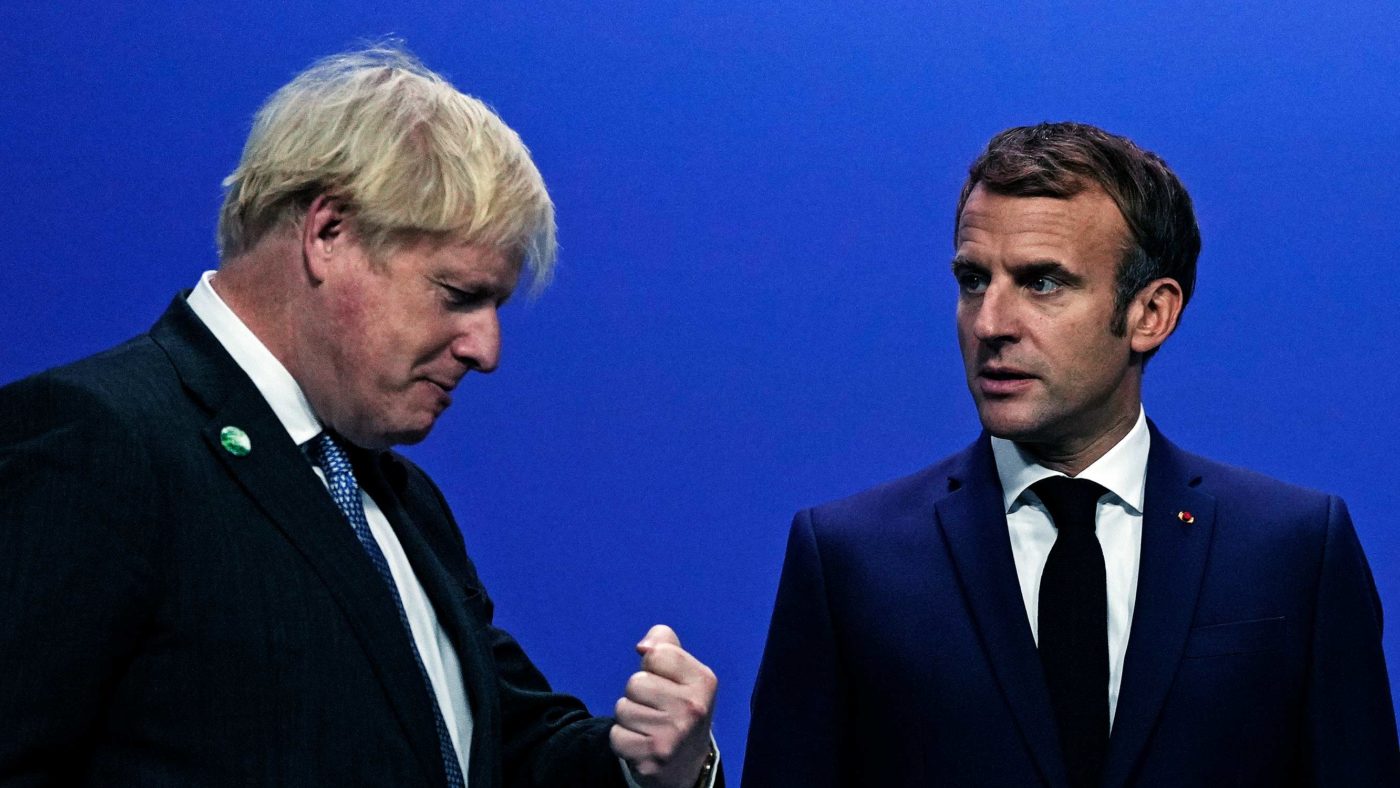The pandemic did strange things to our sense of time. Days stretched out, months slipped by. So when a row with France over fishing rights ended up at the top of the news agenda again, I had to actually check that this story really has been playing out for almost a year.
Back then, I was mostly concerned with the intellectually unserious efforts by sections of the British political and media class to attack the Government for standing up for the UK’s fishing communities and the Channel Islands. Happily, there seem to be less people spluttering about ‘gunboats’ today, unless I’ve got better at tuning them out.
Yet the question remains whether or not Boris Johnson and his ministers have used the intervening year to bolster their capacity to act. It seems unlikely, for example, that rebuilding the fisheries protection fleet is a priority at a time when the Government is trying to balance defence cuts with faintly ridiculous ambitions to remain a player ‘east of Suez’.
As for liberating Jersey et al from the threat of blackouts ordered by the Élysée, even with all the political will in the world that’s the sort of infrastructure project that takes time to deliver.
Combine these facts with the sheer volume of British trade which flows through French ports, and it suggests the Government is in a delicate position. It can’t be seen to back off – and indeed, seems to have the right of the dispute – but isn’t obviously equipped with the leverage to win, at least not yet.
Recent events suggest that this should be remedied sooner rather than later.
Take the so-called ‘Castex letter’. According to the BBC’s Katya Adler, EU sources have described it as ‘unfortunate’ and, whilst insisting it does not signal any punitive intent towards the United Kingdom, concede that it could be interpreted in that light. Yet in the very same thread, she reports a diplomat from an EU country suggesting that ‘the French were talking of trialing retaliatory measures the EU would consider using in case the UK suspends significant parts of the NIreland Protocol’.
Notwithstanding what looks like quite an ambivalent posture on Brussels’ part towards Paris’s bellicosity, it looks as if the internal dynamic of French politics will keep pushing the temperature up on its own.
According to pollsters, French voters believe the perfidious rosbifs got a sweetheart deal for leaving the EU. Michel Barnier, that implacable champion of European principles during the negotiations, now talks like a Eurosceptic as he angles for the conservative presidential nomination. And Marine le Pen’s Rassemblement National casts a nationalist shadow over the upcoming elections.
(It is perhaps too easy to downplay this last fact because it still looks unlikely that she will actually win. This neglects two points. First, a party doesn’t need to win to reshape national politics around its priorities – Ukip didn’t need a Prime Minister to deliver Brexit. Second, the far right getting into the presidential run-off has gone from a shocking aberration to normal.)
All of that, on top of the recent public setback when Australia picked AUKUS for its submarine strategy, means that Emmanuel Macron is likely to keep seeking opportunities to prove his patriotic virility right up to election day. And the most obvious target of that reflex is Britain.
There is scant use complaining about this. Few politicians of any stripe, in any nation, can long resist the temptation to try and shift the blame for any problems onto an external irritant. As immigration, climate change, and other crises continue to turn up the temperature of politics in years (and probably decades) to come, we seem likely to see more of this behaviour rather than less.
Which is why it’s incumbent on our own government to make sure the UK is equipped to navigate this new world. That means rebuilding sovereign capacity to defend our interests and those of our dependent territories, as France’s threats to our fishing waters and the Channel Isles’ power supply indicate, as well as making effective use of the fact that we now represent ourselves on international bodies (such as the World Health Organisation).
Anyone passingly familiar with British politics can be forgiven for feeling pessimistic about the above. Coherent, long-term strategic thinking about foreign policy or infrastructure, let alone both together, is not a hallmark of how things have been done over the past few decades. Outsourcing governance to arms-length international bodies, whatever its democratic shortcomings, was just so much easier.
Click here to subscribe to our daily briefing – the best pieces from CapX and across the web.
CapX depends on the generosity of its readers. If you value what we do, please consider making a donation.


